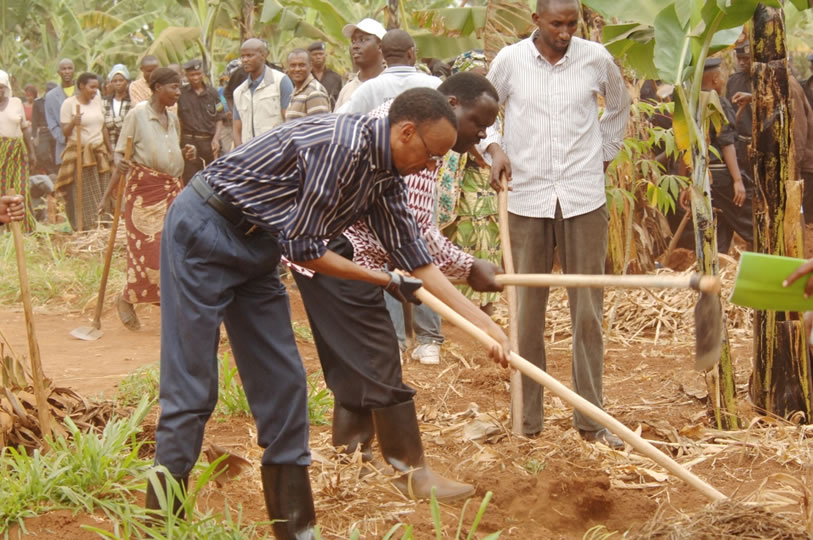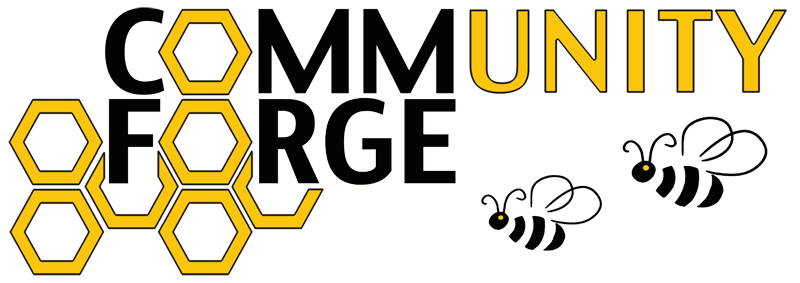You are here
Rwanda's Umuganda
Narrative@communityforge collects stories for you, from all over the world, that share the same core values of solidarity, cooperation and fairness. 
The land of a thousand hills Rwanda is the smallest country in East Africa and the second smallest in Africa. Rwanda is also interesting in its making with various natural, cultural, historical and manmade attractions. It is known as the cleanest country in East Africa which is ever green, with clean roads, no plastic bottles and bags as well as garbage and litter, common things to find in a developing country! The cleanliness of Rwanda cannot be found anywhere if compared to other east African countries. This has been achieved as a result of the “Umuganda”!
Umuganda also translated as ‘coming together in common purpose to achieve an outcome’ was started the period immediately after independence in 1962, organized under special circumstances and was considered as an individual contribution to nation building. It was often referred to as umubyizi, meaning ‘a day set aside by friends and family to help each other’. It became an official government program in 1974 organized on a regular basis once a week with the ministry of district development in charge of overseeing the program.
Umuganda, also known as community work with the purpose to contribute to the overall national development was reintroduced to Rwandan life in 1998 as part of efforts to rebuild the country after the 1994 Genocide against the Tutsi. Today, it takes place on the last Saturday of each month from 8 a.m. and lasts for at least three hours.
Initially, Umuganda was not well received by the people of Rwanda, it was considered forced labor at first but due to its significant achievements in erosion control and infrastructure improvement – especially building primary schools, administrative offices of sectors and villages and health centers, people came to like and participate in it voluntarily. It was distorted by the 1994 Rwanda genocide but was re- introduced in 1998 as part of efforts to reconstruct Rwanda and to nurture a shared national identity.
On this day, both Rwandans and outsiders are encouraged to participate in the activity! Rwandans between 18 and 65 are obliged to participate in Umuganda whereas participation by those above 65 years is optional. On this day even the expatriates living in Rwanda and visitors taking tours in Rwanda are also encouraged to take part in the community work. Unlike the locals, there is no penalty for visitors and expatriates not participating in the activity and it is voluntary work.
More still, on this day, business activity halts, public transportation is limited, and people are seen everywhere working. On this day, you can wonder – streets are empty from 7.00AM to 11.00PM and you will hardly find any vehicles, motorists or pedestrians moving. The work done differs from one area to another! In towns you will find people participate in cleaning streets, cutting grass and trimming bushes along roads, or repairing public facilities! In villages you will see those repairing roads, building houses for vulnerable persons or cleaning wells. People with particular skills offer their services for free on this day. For example, doctors may offer free medical examination.
The activity is done under the control of the selected committees which is responsible for organizing, supervising, evaluating and reporting the work done and more so motivating people to keep the spirit up. At present, 80% of Rwandans take part in monthly community work and Successful projects including building of schools, medical centers and hydro electric plants as well as rehabilitating wetlands and creating highly productive agricultural plots have been established, Umuganda’s contribution to the country’s development since 2007 has been estimated at more than US $60 million.
In addition, besides undertaking community work, Umuganda also serves as a forum for leaders at each level of government (from the village up to the national level) to inform citizens about important news and announcements. Community members are also able to discuss any problems they or the community are facing and to propose solutions together.
However, despite its drastic achievements, Umuganda is faced with the challenge of poor planning, this is in some areas of the of the country and has led to unrealistic targets and projects that difficult to achieve without additional financing.
More still, low participation by the local people in some communities of the country is a big challenge; some people still look at this community work as wastage of time and take it to be forced labor hence limiting the work that would have been done if they had all participated with one heart.
However, training programs for the local people run by the ministry of local government which include lessons on monitoring and evaluation, how to report achievements, the laws, orders and guidelines governing Umuganda as well as responsibilities of the committee. Also, an awareness raising campaign was conducted through documentaries, TV and radio shows to inform Rwandans to promote participation especially in urban areas.
In conclusion, Umuganda was implemented nationwide in 2007 and has done great in promoting development and harmony in Rwanda including different stake holders such as the umuganda supervising committee for planning, organizing and overlooking the activity, the local leaders for promoting participation and the community to take ownership of the project.
Source: http://www.allaboutrwanda.com/umuganda.html
Do you have any other suggestions or experiences to share? We suggest you share them with us via [email protected] and we will pass them on as far as we can.
